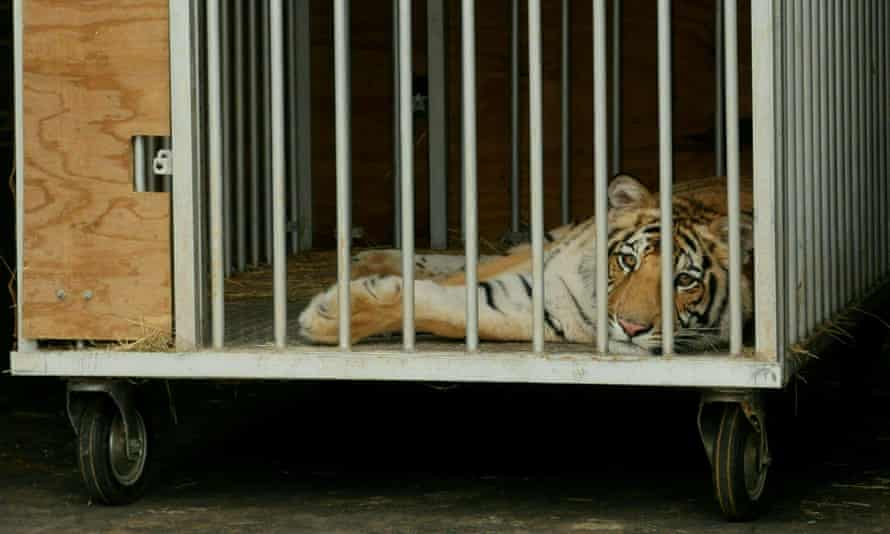Good morning.
The FBI has confirmed that human remains found along the border of Grand Teton national park are those of 22-year-old Gabby Petito, who disappeared while on a cross-country road trip, and that her manner of death was homicide.
Petito’s body was found Sunday near an undeveloped camping area northeast of Jackson, Wyoming. The Teton county coroner, Brent Blue, did not disclose a cause of death pending final autopsy results, officials said Tuesday.
Petito disappeared while on a cross-country road trip with her fiance, who is now being sought by authorities in Florida. The FBI requested for anyone with information about Brian Laundrie’s role in Petito’s death to contact the agency.
The disappearance and death of Petito and the police hunt for her boyfriend have generated a whirlwind online, with a multitude of armchair detectives and others sharing tips and theories.
-
Where is Laundrie? Investigators do not know. His parents told them they last saw him a week ago. Before disappearing, Laundrie refused to speak with investigators about Petito’s whereabouts and retained a lawyer.
-
What have Petito’s family said? Before her body was found, her father, Jospeh, said he wanted Laundrie to be held accountable for whatever part he played in his daughter’s disappearance, along with his family for protecting him.
Kamala Harris on expulsions at US border: ‘Human beings should never be treated that way’

Kamala Harris and Chuck Schumer have added their voices to criticism of the treatment of Haitian migrants at the US-Mexico border who were corralled by US border patrol agents riding horses and allegedly wielding reins such as whips.
Asked on Tuesday about footage of the incident, the vice-president said she supported investigations of the matter and intended to speak to the homeland security secretary, Alejandro Mayorkas.
Harris said: “What I saw depicted, those individuals on horseback treating human beings the way they were, was horrible … Human beings should never be treated that way,” she said. “And I’m deeply troubled about it.”
On Tuesday in Washington, Schumer addressed himself to Joe Biden, saying the images of Haitian migrants being treated with violence was “completely unacceptable”, and said Biden needed to seek accountability.
-
How many migrants are there in Texas? The number of migrants at the Del Rio Bridge peaked at 14,872 on Saturday, said Brandon Judd, president of the National Border Patrol Council.
-
Why did they leave Haiti? Some of those at the Del Rio camp said the recent earthquake and the assassination of the president, Jovenel Moïse, made them afraid to return.
-
What are the US and Mexico doing? The US has ramped-up its exclusion effort. More than 6,000 migrants have been removed. On the other side of the border, Mexico has begun flights of its own.
Missouri couple who pointed guns at protesters may have law licenses revoked

Mark and Patricia McCloskey, a Missouri couple who pointed guns at protesters marching for racial justice last summer, could have their law licenses revoked.
According to court documents first reported by Missouri radio station KCUR-FM, the Missouri chief disciplinary counsel, Alan Pratzel, asked the state supreme court to indefinitely suspend the licenses of the two personal injury lawyers. Pratzel’s office investigates ethical complaints against lawyers in Missouri.
In June 2020, protesters demonstrating about the murder of George Floyd were walking through the gated community on their way to the house of the then mayor of St Louis, Lyda Krewson. Widely circulated video showed Mark McCloskey pointing an AR-15 style rifle at them and his wife holding a semiautomatic pistol.
-
Were they ever convicted? Yes. Mark McCloskey pleaded guilty to misdemeanor fourth-degree assault while Patricia pleaded guilty to misdemeanor harassment. They were later pardoned.
-
Are they sorry for what they did? No. In fact, Mark McCloskey is now running for the Republican nomination to contest a US Senate seat next year and campaign ads use images of the confrontation with protesters.
Willie Garson, Sex and the City and White Collar actor, dies at 57

Willie Garson, the actor best known for his role as Stanford Blatch in the original series of Sex and the City, has died at the age of 57.
Garson won the hearts of fans of the popular HBO series, which first aired in 1998 and ran for six seasons, playing Carrie Bradshaw’s closest male friend, the talent agent Stanford. Garson also appeared in the follow-up films, Sex and the City, and Sex and the City 2. He was recently reprising the role in a reboot of the TV series, And Just Like That, which is currently in production.
Information about the cause of Garson’s death has not been officially released, but Michael Patrick King, the executive producer of Sex and the City and And Just Like That, said in a statement on Tuesday that Garson had been sick.
“The Sex and the City family has lost one of its own. Our amazing Willie Garson,” King said.
-
Garson’s television career has included parts on some of the most high-profile shows from the 1990s and 2000s, including Twin Peaks, Friends and The X-Files.
-
His film credits include There’s Something About Mary, Being John Malkovich, Fever Pitch and Groundhog Day.
In other news …

Stat of the day: Boris Johnson admits he has six children

The British prime minister has admitted for the first time that he has six children, claiming in an interview on US television that he “changes a lot of nappies”. Johnson, who has previously tended to avoid questions about his notoriously complex family life, has been divorced twice, and conceived a daughter during an extramarital relationship. It has been reported that Johnson could have conceived another child or children beyond those known about, but he has refused to discuss this. But when an NBC interviewer put to him that he has six children, he replied: “Yes.”
Don’t miss this: How did America end up with the world’s largest tiger population?

There are about 10,000 tigers in the US. Thirty states allow private ownership of predatory exotics such as tigers. The requirements are deceptively simple: a USDA conservation label form and a $30 license. Nine states require no permit or license whatsoever. This allows virtually anyone to own, breed and sell tigers. While listed as “endangered” under the federal Endangered Species Act, the law allows private possession of captive-bred tigers as long as they’re used for “conservation”, but experts say no tigers bred in captivity are ever released. In 1900, there were about 100,000 tigers in the wild. Today, about 4,000 remain in a handful of nations. If none return to the wild, how does private possession of the feline benefit the species?
Climate check: The Dixie fire is almost out, but its inhospitable ‘moonscapes’ remain

After more than two months, the battle to contain the Dixie fire – a behemoth blaze that swept nearly 1m acres, leveling mountain towns and blackening the conifer-covered landscape – is nearing its end. But even after the fire crews pack up, threats remain for the plants and animals that call this area home. Scientists are warning that the severity of today’s wildfires – which are fueled by warmer, drier conditions and an overabundance of parched vegetation – is making the recovery process increasingly challenging, sometimes for years after the flames are put out.
Want more environmental stories delivered to your inbox? Sign up to our Green Light newsletter to get the good, bad and essential news on the climate every week
Last thing: Mathematicians discover music really can be infectious – like a virus

New music download patterns appear to closely resemble epidemic curves for infectious disease, according to research. Dora Rosati, lead author of the study and former graduate in maths and statistics at McMaster University in Ontario, Canada, along with colleagues, wondered whether they could learn anything about how songs become popular. The research, published in Proceedings of the Royal Society A: Mathematical and Physical Sciences, found mathematical tools used to study infectious diseases performed just as well when describing song download trends as it did when describing the spread of a disease through the population.
Sign up
Sign up for the US morning briefing
First Thing is delivered to thousands of inboxes every weekday. If you’re not already signed up, subscribe now.
Get in touch
If you have any questions or comments about any of our newsletters please email newsletters@theguardian.com








